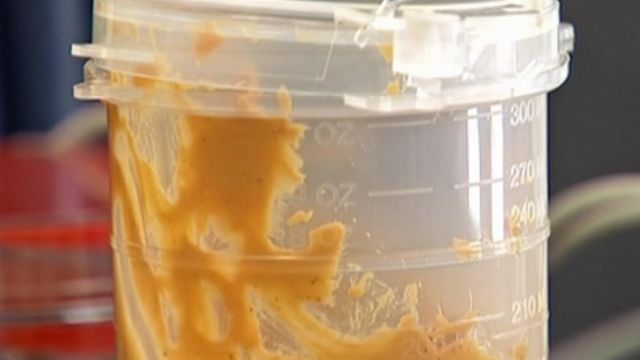Local News
N.C. ag department orders inspections at peanut plants
The peanut industry is taking a hit because of contamination problems, and North Carolina is feeling it. As the fifth-largest peanut producer in the country, the state isn't taking any chances.
Posted — UpdatedRALEIGH, N.C. — North Carolina's commissioner of agriculture says he hopes a sweeping round of inspections at the state's peanut butter processors and roasters will help boost public confidence that Tar Heel products are safe.
Peanuts are taking a public relations hit in the wake of a nationwide salmonella scare that has sickened more than 550 people and been responsible for eight deaths, including at least one in the state.
The scare stems from peanut butter and peanut paste processed at a Blakely, Ga., plant of Peanut Corp. of America, which processes 1 percent of U.S. peanut products.
More than 1,000 products, from ice cream to crackers to granola bars, have been recalled in what experts say appears to be a record number of products for a recall involving food consumed by humans.
Jars of peanut butter are not affected by the recall, and peanuts themselves have nothing to do with the outbreak.
Peanut farmers, however, are sitting on inventory from last year and are unsure how much to plant for this year because of the scare.
They say that could be devastating for the industry, which last year generated more than $80 million statewide.
"You know, it takes months to rebound," agriculture Commissioner Steve Troxler said. Wednesday. "The key is confidence."
That's why Troxler has ordered inspections of the state's four peanut processors and nine peanut roasters to show that the operations are clean.
Troxler says each inspection takes several days and includes collecting and testing samples. As a result, scientists are working morning and evening shifts to process the samples.
"We deal with two to three recalls a year," said Joe Reardon, food and drug protection director of the Department of Agriculture and Consumer Services. "Surely, this ranks as one of our largest recalls in history."
The inspections come after a Kellogg Co. cracker factory in Cary received a tainted batch of peanut butter from the Georgia plant. The local company has since stopped production to clean up and has been sitting idle six weeks.
That's money the state loses for a problem it didn't create. That's a problem, Troxler says, that will take nationwide change.
"We're not able to identify these problems quickly enough to say quickly that everything is safe now," he said.
• Credits
Copyright 2024 by Capitol Broadcasting Company. All rights reserved. This material may not be published, broadcast, rewritten or redistributed.





